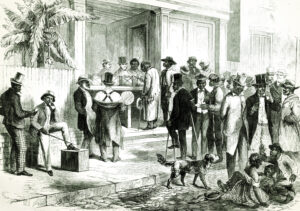“Roger Williams was really America’s first individualist, the first contradictor of authority, the first rebel,” explains John M. Barry, author of Roger Williams and The Creation of the American Soul: Church, State, and the Birth of Liberty. It’s the story of a man who was the first to link religious freedom to individual liberty, and who created in America the first government and society on earth informed by those beliefs. This left a deep imprint on America, somehow without him being a household name.
This is a story of power, set against Puritan America and the English Civil War. Williams’ interactions with King James, Francis Bacon, Oliver Cromwell, and his mentor Edward Coke set his course, but his fundamental ideas came to fruition in America, as Williams, though a Puritan, collided with John Winthrop’s vision of his “City upon a Hill.” He was the founder of Rhode Island who called for a “wall of separation” between church and state.
John M. Barry is a prize-winning and New York Times best-selling author whose books have won several dozen awards. In 2005 the National Academies of Science named The Great Influenza: The story of the deadliest pandemic in history, a study of the 1918 pandemic, the year’s outstanding book on science or medicine. In 1998 Rising Tide: The Great Mississippi Flood of 1927 and How It Changed America, won the Francis Parkman Prize of the Society of American Historians for the year’s best book of American history. His latest book on Roger Williams has been named a finalist for the Los Angeles Times Book Prize.





